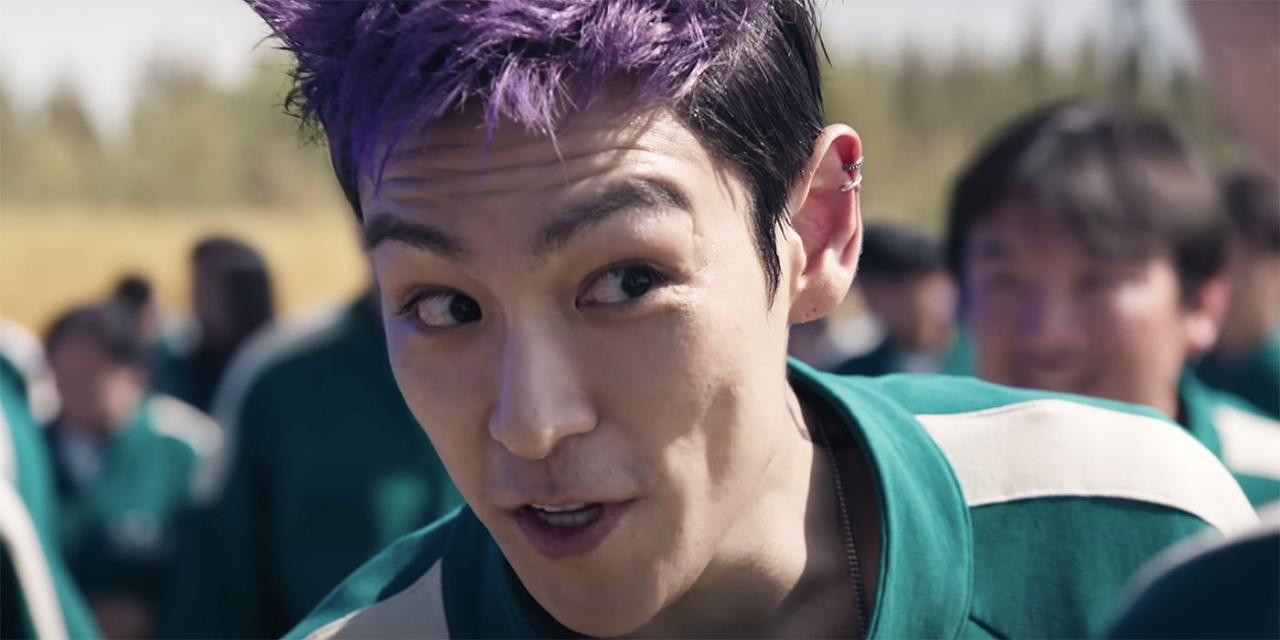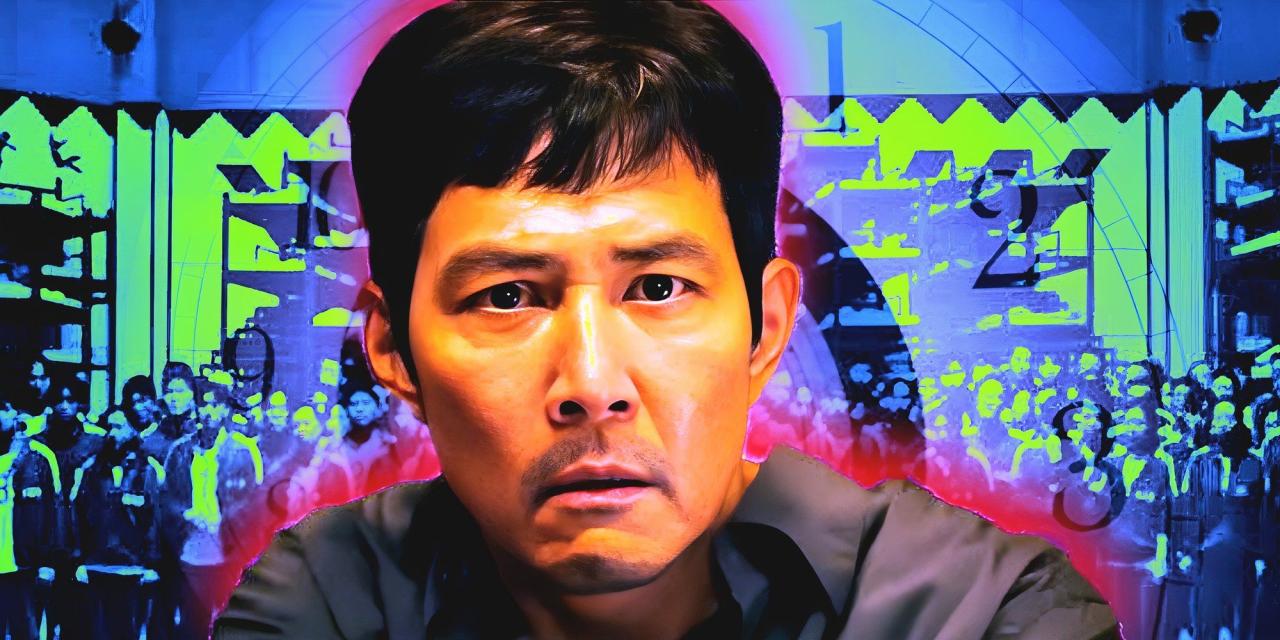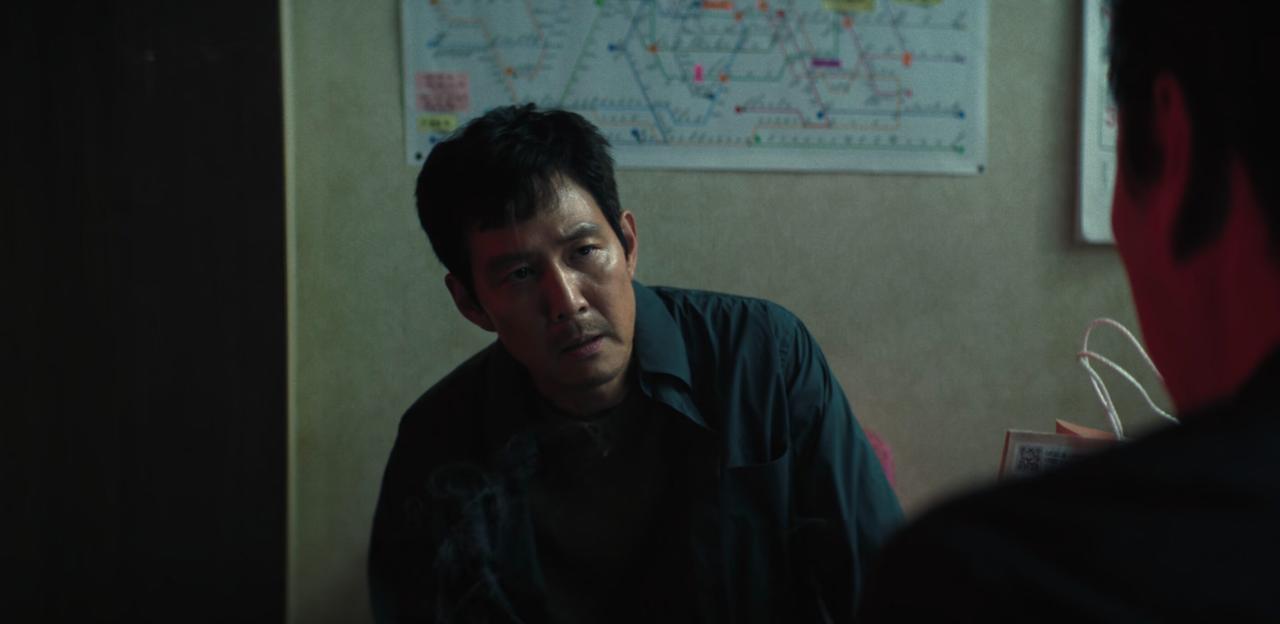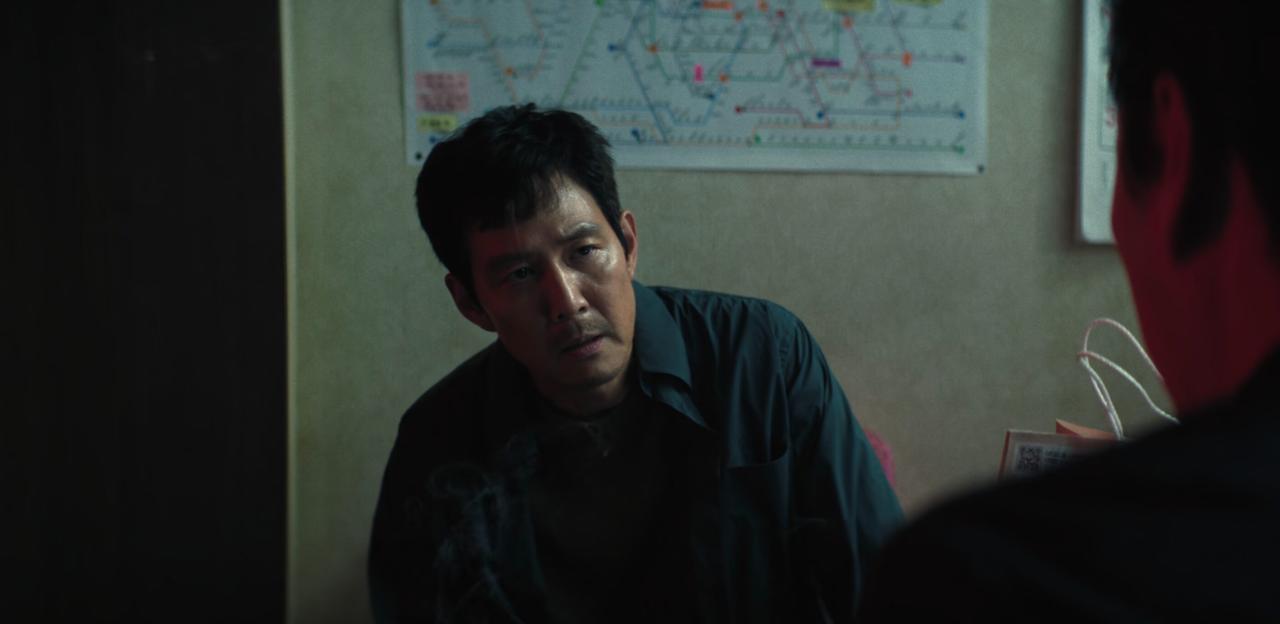Squid Game Histoire Vraie? The hit Netflix show wasn’t just a thrilling spectacle; it sparked global conversations about real-world issues. This exploration dives into the socio-economic conditions in South Korea that may have inspired the show’s brutal games and desperate characters, examining the show’s portrayal of debt, poverty, and the psychological toll of extreme competition. We’ll separate fact from fiction, exploring the show’s impact on culture and its reflection of universal anxieties.
From the inspiration behind the deadly games to the show’s surprisingly accurate reflection of societal pressures, we’ll unpack the complex relationship between “Squid Game” and real-life struggles. We’ll analyze how the show uses visual storytelling to convey despair and hope, and consider the psychological impact of extreme competition and overwhelming debt. Ultimately, we aim to understand how a fictional show can hold a mirror to our own anxieties about economic inequality and the human cost of desperation.
The Inspiration Behind “Squid Game”: Real-World Parallels in South Korea: Squid Game Histoire Vraie
The immense popularity of “Squid Game” stems not only from its thrilling plot but also from its unsettling reflection of real-world socio-economic anxieties, particularly within South Korea. The show’s brutal games serve as a stark metaphor for the desperation faced by individuals struggling under immense financial pressure.
Socio-Economic Conditions in South Korea
South Korea’s highly competitive society and significant income inequality contribute to the show’s themes. A considerable portion of the population faces the pressure of high living costs, educational expenses, and the burden of societal expectations. This pressure can manifest as extreme competition for jobs and resources, mirroring the cutthroat environment depicted in the series.
Real-Life Debt Crises and Their Impact
Numerous instances of debt crises in South Korea have profoundly impacted individuals and families. High levels of household debt, coupled with job insecurity, often lead to financial ruin. The show’s portrayal of characters driven to desperate measures by debt reflects this harsh reality. For example, the increasing prevalence of “debt bondage” situations, where individuals are trapped in cycles of borrowing and repayment, mirrors the show’s high-stakes games.
Korean Games and Traditions
While the games in “Squid Game” are amplified for dramatic effect, several are reminiscent of traditional Korean children’s games. The simplicity and familiarity of these games, juxtaposed with their deadly consequences in the show, create a powerful contrast. Games like “Red Light, Green Light” and “ddakji” are examples of this familiar-yet-fatal juxtaposition.
Gambling and Desperation in South Korea
The cultural context of gambling and desperation in South Korea plays a crucial role in understanding the show’s narrative. While not explicitly depicted in the same manner as in “Squid Game”, the desperation driven by financial struggles can lead some individuals to turn to high-stakes gambling as a last resort, highlighting the high-pressure environment many Koreans face.
Comparison of Fictional and Real-World Games
| Squid Game Game | Real-World Equivalent | Key Differences | Social Commentary |
|---|---|---|---|
| Red Light, Green Light | Traditional Korean children’s game | Life-or-death stakes vs. playful competition | The desperation to survive, even at the cost of others. |
| Honeycomb Ttakji | Traditional Korean street game | High stakes with deadly consequences | The pressure to succeed, even when the odds are stacked against you. |
| Tug-of-War | Traditional game with variations worldwide | Exaggerated physical demands, elimination | The ruthless competition for survival in a zero-sum game. |
| Marbles | Common children’s game | High-stakes gambling with emotional manipulation | Exploitation of trust and vulnerability under extreme pressure. |
The Global Phenomenon of “Squid Game”: A Cultural Impact
“Squid Game” transcended its Korean origins to become a global sensation, reflecting universal anxieties about economic inequality and the struggle for survival. Its popularity highlights the shared human experience of facing overwhelming odds and the desperate measures individuals might take.
Global Popularity and Economic Inequality
The show’s widespread appeal demonstrates that the themes of economic disparity and the fight for survival resonate deeply across cultures. People worldwide connected with the characters’ struggles, highlighting the universality of these issues.
Cultural Nuances in Interpretation, Squid game histoire vraie

While the show’s core themes resonated globally, interpretations varied across cultures. In some countries, the focus was on the critique of capitalism and social injustice, while others emphasized the thrill of the games and the suspenseful narrative. These differences in interpretation reflect diverse cultural perspectives and societal contexts.
Conversations on Social Justice and Economic Disparity
“Squid Game” sparked significant conversations about social justice and economic inequality. The show prompted discussions about wealth disparity, systemic issues, and the need for social safety nets. It served as a powerful catalyst for addressing these critical societal problems.
Replication and References in Other Media
The show’s imagery and themes were quickly replicated and referenced in various media, including Halloween costumes, social media trends, and parodies. This widespread cultural impact underscores its significant influence on global pop culture.
So, you’re into the “Squid Game histoire vraie” debate? It’s fascinating how real-life desperation can mirror the show’s themes. Think about the scale of that – it makes you appreciate the sheer spectacle of things like the amazing china new year drone show 2041 , a completely different kind of spectacle, but equally impressive in its own way.
The contrast highlights how human ingenuity can create both terrifying competition and breathtaking artistry. Back to “Squid Game histoire vraie,” though – what do you think really inspired the show’s creators?
Impact on Cultural Trends
- Increased interest in Korean culture and language.
- The dalgona candy-making trend went viral on social media.
- The show’s distinct aesthetic influenced fashion and design.
- Music inspired by the show’s themes and soundtrack gained popularity.
Debunking Myths and Misconceptions: Fact vs. Fiction
While “Squid Game” uses dramatic license for storytelling purposes, it’s crucial to distinguish between the show’s fictional portrayal of extreme games and the reality of debt and poverty in South Korea. The show’s exaggerated depiction should not overshadow the very real struggles faced by many.
Exaggerations and Distortions
The show significantly exaggerates the violence and the scale of the games. While debt is a serious problem in South Korea, the extreme situations depicted are not representative of the everyday reality for most individuals. The show uses hyperbole to emphasize its themes.
Legal and Social Consequences of Debt
In reality, the legal and social consequences of debt in South Korea are complex. While bankruptcy is an option, it can have significant social stigma. Many individuals struggle to manage debt through various means, with varying degrees of success. The show simplifies this complex reality for narrative purposes.
Dramatic License in Storytelling
The show employs dramatic license to create a compelling narrative. The extreme nature of the games and the high stakes involved are not reflective of real-life situations, though the underlying themes of desperation and financial struggle are very real.
Factual vs. Fictional Representation
| Factual Information (South Korea) | Fictional Representation (“Squid Game”) | Discrepancy | Commentary |
|---|---|---|---|
| High levels of household debt | Life-or-death games for debt relief | Exaggeration of consequences | Highlights the desperation caused by debt |
| Competitive job market | Brutal elimination games | Hyperbolic representation | Emphasizes the ruthlessness of competition |
| Social safety nets exist, though limitations exist | Complete lack of social support for the players | Simplification of social support systems | Focuses on individual struggle in a system perceived as failing them |
The Psychological Impact of Extreme Competition and Debt
The psychological pressures faced by individuals struggling with overwhelming debt are significant. The show’s depiction of the characters’ mental states, driven by desperation and the need to survive, highlights the devastating consequences of such pressure.
So, you’re into the “Squid Game histoire vraie” debate? It’s fascinating how a fictional show reflects real-world anxieties. Think about the sheer scale of the games – imagine a drone show of that magnitude, like the incredible shanghai drone show 2031 , only with deadly consequences. The contrast highlights just how extreme the Squid Game’s premise is, making you question the desperation behind such a scenario.
Psychological Pressures of Debt
Overwhelming debt can lead to anxiety, depression, and even suicidal thoughts. The constant worry about finances and the fear of failure can significantly impact mental health. The show portrays these effects through its characters’ actions and emotional states.
Psychological Effects of High-Stakes Competitions

Participating in high-stakes competitions, especially under duress, can induce extreme stress, fear, and paranoia. The constant threat of elimination and the pressure to perform can severely impact mental well-being. The show vividly depicts these effects.
Social Isolation and Desperation
Social isolation and desperation are common consequences of severe financial hardship. The feeling of hopelessness and lack of support can lead to further mental health deterioration. The characters’ experiences in the show illustrate these feelings.
Real-World Examples of Extreme Measures
In real-world situations, individuals facing extreme financial hardship have resorted to desperate measures, including illegal activities or self-harm. These actions underscore the devastating impact of unmanageable debt and the lack of support systems.
Psychological States of “Squid Game” Characters
- Overwhelming fear and anxiety
- Desperation and a will to survive
- Paranoia and distrust of others
- Moral dilemmas and compromises
- Emotional exhaustion and burnout
Visual Representation of Despair and Hope in “Squid Game”
The visual elements in “Squid Game” are meticulously crafted to convey the characters’ internal struggles and the overall themes of the show. The director’s use of color, lighting, and set design creates a specific mood and atmosphere that enhances the narrative impact.
So, you’re curious about the “Squid Game histoire vraie” – whether it’s based on a true story? While the show’s extreme games are fictional, the harsh realities of debt and societal inequality it depicts are very real. Thinking about regulations, it’s interesting to compare this to the complexities of new drone rules Canada , which also deal with controlling potentially dangerous activities.
Ultimately, both “Squid Game histoire vraie” and drone regulations highlight the need for careful control and consideration of potential risks.
Visual Elements of Hopelessness and Despair
The show uses muted colors, stark lighting, and claustrophobic set designs to create a sense of hopelessness and despair. The bleak environments reflect the characters’ internal struggles and the grim reality of their situation. The recurring use of grey and muted tones emphasizes the grimness of their circumstances.
Color, Lighting, and Set Design
The vibrant colors of the games are juxtaposed against the drabness of the players’ living quarters, highlighting the stark contrast between the artificial hope of the games and the bleak reality of their lives. The lighting often emphasizes shadows and darkness, reflecting the psychological state of the characters. The set design uses enclosed spaces to create a feeling of confinement and claustrophobia.
Visual Metaphors

The director uses visual metaphors to represent the characters’ internal struggles. For example, the recurring imagery of the doll in “Red Light, Green Light” symbolizes the manipulative nature of the games and the players’ vulnerability. The vastness of the game arena compared to the smallness of the players further illustrates their helplessness.
Contribution to Overall Themes
The visual storytelling significantly contributes to the show’s overall themes. The stark contrast between the vibrant games and the drab reality of the players’ lives reinforces the show’s critique of social injustice and economic inequality. The careful use of visual elements enhances the emotional impact of the narrative.
Detailed Scene Description
The final game, a glass bridge, is visually stunning. The towering height, the shimmering glass panels, and the limited number of safe steps create a sense of impending doom. The precariousness of each step visually represents the characters’ fragile hopes and the constant threat of death. The intense close-ups on the characters’ faces highlight their internal struggles and their desperate fight for survival. The use of high-angle shots emphasizes the vulnerability of the players, while the vastness of the setting amplifies their isolation.
Closure
While “Squid Game” is undeniably fiction, its resonance stems from its chillingly realistic portrayal of societal pressures. By examining the show’s inspiration and impact, we gain a deeper understanding of the complex interplay between economic hardship, psychological distress, and the human drive for survival. The show’s popularity serves as a stark reminder of the pervasive global issues of inequality and the urgent need for social justice.
It’s a story that, while fictional, continues to spark important conversations.
Essential FAQs
Was anyone actually killed playing these games?
No. The games depicted in “Squid Game” are fictional and no such deadly games have ever been reported.
How accurate is the show’s portrayal of South Korean society?
While the show exaggerates certain aspects for dramatic effect, it reflects real issues like high debt levels and social inequality in South Korea.
What legal consequences exist for debt in South Korea?
South Korea has laws regarding debt, including bankruptcy and debt restructuring options, though the show’s portrayal is highly dramatized.
Did the show inspire copycat games?
While there haven’t been reports of deadly copycat games, the show’s popularity did lead to some recreations of the games, prompting safety concerns.
